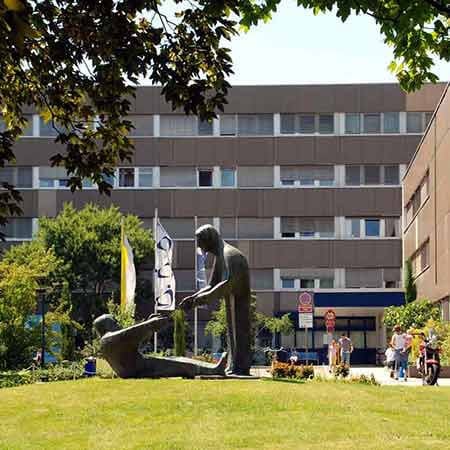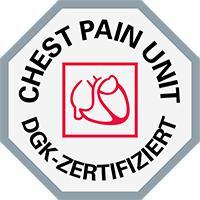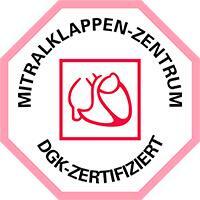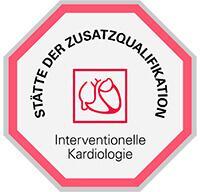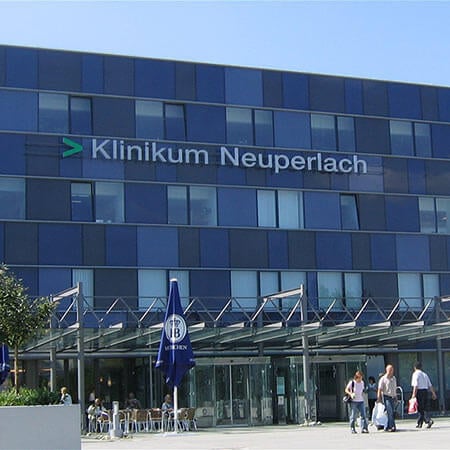Ventricular flutter is a disorder (tachycardia, to be exact) in which the heart rhythm is inconsistent. It causes the ventricles to contract without pumping blood effectively. Sometimes caused by a heart attack, ventricular flutter causes a dramatic drop in blood pressure, disrupting the flow to vital organs.
Content
- Ventricular tachycardia overview
- What causes ventricular flutter?
- Atrial flutter and ventricular flutter
- Symptoms of ventricular flutter
- Emergency treatment of ventricular tachycardia
- Treatment to prevent repeated episodes of ventricular tachycardia
- The prognosis for patients with ventricular flutter
- Treatment in German hospitals
- The cost of treatment of ventricular flutter in Germany
- Treatment in Germany with Booking Health
Ventricular tachycardia overview
Ventricular flutter implies a ventricular tachycardia with a regular frequent (up to 200 – 300 per min) rhythm. Ventricular flutter is accompanied by a drop in blood pressure, fainting, pallor or diffuse cyanosis of the skin, agonal breathing, convulsions, dilated pupils, with the most severe manifestation being sudden cardiac death. The diagnosis of ventricular flutter is made based on clinical and electrocardiographic data.
Ventricular flutter can progress to fibrillation, which is frequent (up to 500 per minute) but irregular and disorderly ventricular activity. In medicine, ventricular flutter and fibrillation are among the dangerous arrhythmias that lead to hemodynamic inefficiency and serve as the most frequent cause of so-called arrhythmic death. According to epidemiological data, ventricular fibrillation usually occurs in people between the ages of 45 and 75 years, with men suffering from the condition 3 times more frequently than women. Ventricular fibrillation causes sudden cardiac death in 75 – 80% of cases.
What causes ventricular flutter?
Ventricular flutter (tachycardia) may develop both due to heart disease and in various cardiovascular pathologies. Most often ventricular flutter and fibrillation are complicated by severe organic myocardial damage in CHD (acute myocardial infarction, postinfarction cardiosclerosis), cardiac aneurysm, myocarditis, hypertrophic or dilated cardiomyopathy, Wolff-Parkinson-White syndrome, and valve heart defects (aortic stenosis and mitral valve prolapse).
More rare causes of the ventricular flutter are intoxication by cardiac glycosides, electrolyte imbalance, high levels of catecholamines in the blood, electrical trauma, vascular dysfunction, chest wounds, cardiac contusion, hypoxia, and acidosis. Some drugs (sympathomimetics, barbiturates, narcotic analgesics, antiarrhythmic agents, etc.) can cause ventricular tachycardia as a side effect. Sometimes ventricular flutter and fibrillation occur during cardiac surgical procedures.
The main role in the pathogenesis of ventricular flutter belongs to multiple disordered re-entry waves, leading to the contraction of individual myocardial structures in the absence of whole ventricular contraction. The reason for this is electrophysiological heterogeneity of the myocardium when at the same time different parts of ventricles are in periods of depolarization and repolarization. Ventricular flutter and fibrillation are most often triggered by ventricular or supraventricular extrasystoles. The re-entry mechanism can also initiate and sustain atrial flutter, Wolff-Parkinson-White syndrome, atrial and ventricular tachycardia, and atrial fibrillation.
Paroxysmal flutter or ventricular fibrillation is accompanied by syncope and the permanent form of tachycardia – by clinical and then biological death.
Atrial flutter and ventricular flutter
Atrial flutter and ventricular flutter share similar symptomatology, so with one or another heart condition, the question of the correct diagnoses arises.
Atrial flutter is also a type of ventricular tachycardia characterized by the uncoordinated electrical activity of atria with subsequent deterioration of their contractile function. Atrial flutter is the most common sustained arrhythmia, the frequency of which increases with age. Atrial flutter accounts for about half of cases of hospitalizations for heart rhythm disorders. Atrial flutter is often accompanied by heart disease with the presence of vascular changes. Some patients with atrial flutter do not notice any signs of cardiovascular disease, however, hemodynamic disorders and thromboembolic complications associated with atrial flutter cause high morbidity, double increase in mortality in atrial flutter and demand considerable expenses for its treatment.
Normally, the electrical impulse is formed in one point of the myocardium and then spreads to the whole heart. In atrial flutter, pathological additional activity occurs, resulting in a pulse count greater than 300 bpm. Atria are not able to contract with such frequency, their walls make irregular oscillatory movements. Part of impulses is passed to the ventricular myocardium, stimulating their contraction. In contrast to the atria, the ventricles contract fully, but not rhythmically. The heart, working under conditions created by atrial flutter, does not pump blood in sufficient volume and with sufficient force, so all organs experience oxygen starvation.
Atrial flutter often occurs due to pre-existing heart pathology and other organ diseases. Therefore, to reduce the risk of atrial arrhythmia, it is necessary to prevent and promptly treat cardiac ischemia, hypertension, valve defects, lung disease, obesity, hyperthyroidism, and other pathologies.
One should not forget about risk factors of atrial flutter, which include smoking, alcohol abuse, excessive consumption of caffeine (coffee, energy, and tonic drinks).
Symptoms of ventricular flutter
In ventricular flutter, low cardiac output, arterial hypotension, and consciousness may persist for a short time. Rarely, ventricular flutter ends with the spontaneous restoration of sinus rhythm; more commonly, the erratic rhythm progresses to ventricular tachycardia.
Ventricular flutter is accompanied by circulatory vascular arrest, fainting, the disappearance of pulse on carotid and femoral vascular levels, agonal breathing, sharp pallor, or diffuse cyanosis of the skin. Tonic convulsions, involuntary urination, and defecation may occur. If within the next 4 – 5 minutes an effective heart rhythm is not restored, irreversible changes in the CNS and other organs occur.
The worst outcome of ventricular flutter is death. Complications associated with cardiopulmonary resuscitation may be aspiration pneumonia, lung injury, pneumothorax, and hemothorax. Various arrhythmias, anoxic (hypoxic, ischemic) encephalopathy, myocardial dysfunction due to reperfusion syndrome often occur in the post-resuscitation period.
Emergency treatment of ventricular tachycardia
A separate area of treatment of ventricular tachycardia is emergency medical care for a severe attack with cardiac arrest and circulatory arrest. Emergency treatment may be needed to restore blood flow as quickly as possible and prevent damage to the brain and other vital tissues. After blood flow is restored, measures may need to be taken to prevent recurrent acute episodes.
The only effective way to restore heart function is the use of defibrillators (electrical current devices). If the acute episode of ventricular flutter happens outside the hospital, indirect heart massage and CPR should be performed while waiting for an ambulance. Circulatory support provides time for more advanced and specialized care.
The main signs of a severe attack of ventricular tachycardia are fainting, lack of breathing, and pulse. It is necessary to put the patient on his back on a hard flat surface, make a blow to the sternum and begin to press intensely and rhythmically on the chest. The approximate frequency is 10 presses per minute. Indirect heart massage should be carried out until the arrival of the medical team, as the mechanical movement replaces the natural heartbeat and keeps the blood moving. Emergency physicians restore the heartbeat with a defibrillator and antiarrhythmic medicines. When doctors arrive, the patient will immediately be brought out of ventricular flutter with the help of a defibrillator. The patient will be connected to a ventilator. Adrenaline will be given intravenously to stimulate the heart, as well as antiarrhythmic medicines to help normalize the heart rhythm.
Complications and consequences that can occur in a person with an acute ventricular tachycardia episode include:
- Aspiration inflammation of the lungs.
- Injuries sustained during a person's fainting.
- Heart failure, vascular clogging, poor circulation due to blood clots, especially in the arms and legs.
Treatment to prevent repeated episodes of ventricular tachycardia
Treatment of ventricular tachycardia should be started as quickly as possible, as the disease can be fatal in a fairly short time if the necessary measures are not taken.
If your doctor believes the ventricular tachycardia is caused by a change in the structure of your heart due to scarring or a previous heart attack, they may give medication or special procedures to prevent the flutter. Treatment may include therapy with medication.
Doctors use a variety of antiarrhythmic drugs for the treatment of various types of arrhythmias. Beta blockers are most commonly used in people at increased risk. The main group of medicines used to treat ventricular tachycardia is antiarrhythmic drugs. Class I, II, and III drugs can theoretically be prescribed. However, extensive practical experience has allowed dividing them into three orders in descending order of effectiveness. The drugs of the first order are those that give a noticeable positive result in 70% of cases. An example of such a drug is amiodarone. However, the list is not limited to it, the selection of the safest and most effective drug is made by the doctor.
Self-treatment with antiarrhythmic drugs is highly not advisable because they can provoke adverse reactions up to the fatal outcomes. Even with the safest drugs in this group, the frequency of adverse effects ranges from 4 – 8% to 25 –30%. You should start treatment under constant monitoring of your heart rate and a doctor's supervision.
The implantation of a cardioverter-defibrillator is another option for the treatment of ventricular tachycardia. Once the patient's condition has stabilized, a physician may recommend ICD implantation.
An ICD is a battery-operated device that is implanted near the left clavicle. The ICD continuously monitors the heart rhythm. If the heart rhythm is too slow, the ICD influences it by applying additional stimuli. If the ICD detects a dangerous change in rhythm, it can send a low or high voltage charge to restore the normal rhythm. The ICD may be more effective than medications and reduces the chances of fatal arrhythmias.
Coronary angioplasty is also an option for the treatment of the condition. This procedure involves restoring the lumen of blocked coronary arteries, which reduces the risk of dangerous arrhythmias. Doctors insert a long, hollow tube (catheter) into the limb arteries that reach the arteries of the heart. The catheter is fitted with a special balloon that can "open" a blocked coronary artery. At the same time, a metal mesh stent can be inserted into the artery to keep it open for the long term. Coronary angioplasty and vascular stenting can be performed during an angiogram – a diagnostic procedure to detect coronary artery anomalies.
The prognosis for patients with ventricular flutter
The outcome of ventricular flutter depends on the timing and effectiveness of resuscitation measures. If the treatment is timely and adequate, the survival rate is more than 80%. In the case of circulatory arrest for more than 4 minutes, irreversible changes in the central nervous system develop.
And again, prevention of ventricular flutter involves the control of the course of the primary disease, careful assessment of possible risk factors, prescription of antiarrhythmic medicines, and cardioverter-defibrillator implantation.
Treatment in German hospitals
Cardiologists at German hospitals can perform the most precise and effective diagnostic and therapeutic procedures on the most advanced equipment. Their extensive experience, responsible approach, and excellent practical skills enable them to cope with such complex and dangerous illnesses as ventricular tachycardia.
Leading German hospitals are equipped to perform complex surgical manipulations. The proper treatment in Germany can reliably protect a person from the risk of heart attack as well as stroke, so do not put off treatment "for later".
The leading hospitals for ventricular flutter treatment in Germany are:
- St.Vincentius Hospital Karlsruhe-Academic Hospital of the University of Freiburg.
- Hospital Neuperlach Munich.
- University Hospital Ulm.
- University Hospital Heidelberg.
- University Hospital Frankfurt am Main.
If you want to get a custom selection of German hospitals that potentially fit your requirements, leave a request on the Booking Health website.
The cost of treatment of ventricular flutter in Germany
Even though the cost of treatment in Germany cannot be called cheap, the cost of treatment is fully justified. Every year, thousands of people come to this country for comprehensive and effective treatment. Having undergone the required course of therapy, many of them become absolutely healthy, and all this is due to the competent and professional approach of professors and doctors working in the hospitals of this country.
The prices for ventricular flutter diagnostics start at 497 EUR.
The cost of treatment with a cardioverter-defibrillator starts at 8,770 EUR.
The prices for cardiac rehabilitation start at 566 EUR.
Feel free to contact Booking Health to know more about the prices for ventricular flutter treatment in Germany.
Treatment in Germany with Booking Health
German medicine is highly respected all over the world. So, for the treatment of any heart disease, especially severe ones, it is better to go to Germany. The patients are treated with effective, safe, and minimally invasive methods here.
With Booking Health, you can concentrate fully on restoring your health, avoiding organizational worries, saving time and money, as the company takes care of all the issues that may arise during treatment planning.
To contact Booking Health, use the request form on the website.
Authors: Dr. Vadim Zhiliuk, Dr. Sergey Pashchenko
